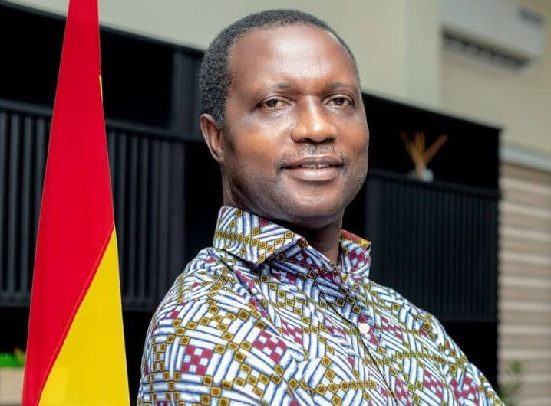
A true leader is without paid followers:
BY this I mean, a leader does not pay his followers before they follow him. The followers of a true leader are purely voluntary. A church that pays its church members is a tricky place to serve.
The CEO of a company whose workers are there because there is “good” salary is not necessarily a good leader. They are there because of the money. So if he is getting the money from a wrong source, money laundry, washed crime, unhealthy competition in business etc, they don’t really mind. All their privation is the “good” salary. Is such a CEO a true leader?
When followers are trained to generate their own resources to pay themselves, then we understand leadership. That’s why a country with low shared-productivity but a high GDP may still lag in development because of inequality, poor distribution of rights, responsibilities and resources.
When politician have to use direct and indirect means to buy the votes of the electorate, they are paying for followers. That’s not leadership. Such politicians should not be voted for because they are politicians and we are voting first leaders.
Politicians are not necessarily leaders. Followers should understand this! Why do you follow the pastor in your church? Why don’t you follow NPP or NDC or any other political party? Look out for their leadership, not their politics. You do not go to a hospital because of the politics of the medical staff. If you did that, you will die from your sickness.
We go there because of their competence to get us back to good health. Development is the health of a people: public good. Politicians do politics not development. Leaders do development. There is a gulf of difference between the two concepts. Development is not the reward politicians give to followers it is the outcome of good leadership. Anyone paying for followers is not a leader; that’s politics.
True leaders don’t seek for a legacy:
The pursuit of legacy can lead to very erroneous decisions at the expense of followers. A legacy is not determined by the leader; perhaps not even by to followers of the time. Legacy is determined by posterity. Times change; and our times seem to be changing very fast. Therefore what a person may see as a legacy for the next generation may not be so at all. Moreover, one legacy may be at the expense of another. Therefore the pursuit of a legacy can be a very misleading quest for a leader. True leaders don’t seek to be remembered. They merely seek to do good.
Also, true leaders do not pursue publicity. They don’t seek to be popular. They may become well known because of the good results they produce. But if one does good because one seeks to be popular, the good is a personal gain ( or loss), not a public good.
Only public good produces a good public therefore private popularity, is not for the good of the public. When the public is famous, e.g. Ghanaians become globally famous because they have a leader who is achieving massive public good, the fame is not private popularity. It is a good global image that adds to the public good.
But many leaders, so-called, seem to be pursuing fame and popularity. Some are even bold enough to communicate themselves as religious leaders. For the Christians, I concede Jesus was famous, but to what end. He was crucified by the verdict of the masses.
His popularity got him crucified. Perhaps this was essentially because his enemies, the opposition, misrepresented him to the public for their own selfish interest.
If a leader produces sufficient public good, net public gain, he may become popular because he will be famous. People would like him. Good is attractive. No one prefers bad to good. But the majority may not follow a good leader. This is why a good leader does not seek popularity. Without seeking fame, one can be famous. Without seeking popularity one can be popular.
When leaders begin to harness publicity infrastructure with enormous investments in billboards and other advertising mechanisms to the extent that it distracts from the investment required to produce better public good, we may have a crisis in our development: window dressing.
May the following be thus presented as few suggestions for measuring true leadership, beginning with factors for quality human resource as we all understand that as the fundamental resource of every society.
Qualitative development of a critical mass of Human Resources begins with the mind culture of a people. Mind culture refers to the context of population mind set. This is a function of information, knowledge and the education process. In the context of Africa, population mind set is largely catalysed by religion, much of which may be argued to be a misrepresentation of the Christian faith.
Therefore, a pivotal consideration is to challenge any individual who claims to a Christian to be accountable to their faith. In Ghana, for example, we thus would need a mechanism that motivates individual Christians to be responsible to their faith: demonstrate the credibility of their personal relationship to Jesus Christ, demonstrate a good commitment to the authenticity of biblical injunctions and also confirm their claim joyfully submit to the grace of God.
At this point, it is obvious that I hold the view that true leadership must be based on godliness and measured by the processes and outcomes of Christian character. By their fruits, we will know them.
Fruits of true leadership: transformation
“When you call it a sin, it sounds religious; when you call it corruption it sounds political, when you call it wrong it sounds moralistic, so let’s call it nothing so it becomes meaningless”
Transformation is the process of moving a people away from meaninglessness to meaningful living. It is the product of a true leader: enduring endeavours of labouring for public good to produce a good public. It is not a difficult endeavour for responsible human beings; but it is impossible for godless men.
The writer is a member of Cross-Cutting Excellence (CCE)
BY EMMANUEL KWAME MENSAH
The post Pointers of true leadership: Measuring transformation Part 11 appeared first on Ghanaian Times.
Read Full Story



















Facebook
Twitter
Pinterest
Instagram
Google+
YouTube
LinkedIn
RSS